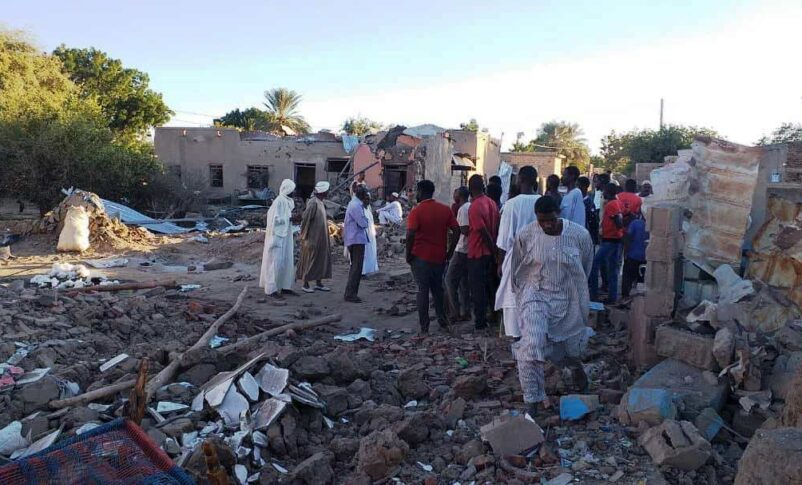Sudanese army bombs RSF positions in White Nile State
January 14, 2024 (KHARTOUM) – Sudanese warplanes launched airstrikes on Sunday against the Rapid Support Forces (RSF) positions in White Nile State, a neighbouring region to Khartoum State.
This marks the first time the Sudanese army has targeted RSF strongholds since the latter seized control of the Jabal Aulia military base south of Khartoum and advanced westward to Al-Qutaina, an important town in White Nile.
Military sources confirmed that the airstrikes specifically targeted the camp of the martyr Issa Bishara, a strategic location previously held by the army.
The bombings are part of an ongoing effort to reclaim lost territory and strengthen the army’s presence in the region.
Violent Ground Battles Engulf Omdurman
Meanwhile, fierce ground battles continue to rage between the Sudanese army and the RSF within Khartoum State, particularly in the old Omdurman area.
The army has been striving to establish a continuous line of control between the Engineer Corps in southern Omdurman and the Karari military region in the north.
After months of intense fighting, the army has made significant gains, taking control of the Al-Umda and Al-Abbasiya neighbourhoods and large swathes of Wadnobawi. The Omdurman Popular Market and the main Omdurman market have been battlegrounds for months.
Artillery exchanges intensify
In South Khartoum, eyewitnesses reported heavy artillery shelling by the army in the South Belt area, which encompasses the neighbourhoods of Al-Salamah, Al-Nahdha, Id Hussein, and Mayo. The RSF responded with their artillery fire, targeting the Army General Command and the Armored and Ammunition Corps in the Al-Shajara military area.
Violent clashes between the Sudanese army and the RSF erupted in mid-April, initially confined to Khartoum before spreading to vast regions of Darfur, Kordofan, Al-Jazira, and parts of White Nile. The ensuing conflict has created a dire humanitarian crisis, displacing over seven million people both internally and externally.
As the war nears its ninth month, regional and international powers are mounting pressure on both sides to return to the negotiating table and agree to a ceasefire, enabling the delivery of essential humanitarian aid to those affected by the violence.

